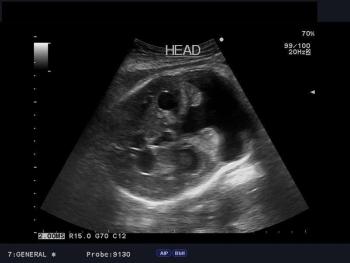
For many women, the 50s are a milestone decade. In addition to other changes, menopause can bring about sexual dysfunction.

For many women, the 50s are a milestone decade. In addition to other changes, menopause can bring about sexual dysfunction.

Data are limited and evidence inconclusive on whether exercise prevents glucose intolerance in pregnant women.

In this protocol, Dr. Lockwood reviews the pathophysiology, diagnosis, and treatment of autoimmune disease in pregnancy. Included are guidelines for management of systemic lupus erythematous (SLE), rheumatoid arthritis (RA), scleroderma, and rarer autoimmune disorders.

With 20% of U.S. MDs older than age 65, there is increasing concern about how to monitor and manage the potential for cognitive decline in physicians. Is an annual fitness-for-duty exam for older doctors a good idea?

This is an early 3rd trimester pregnancy. What is your diagnosis of this placenta?

In a new systematic review, researchers studied the benefits and harms of pharmacological therapies for overactive bladder in women.

For the first time, we have a drug in our arsenal to help prevent the spread of HIV infection to uninfected individuals.

Cancer passed in utero, trading art for health care, urinary incontinence in young women and more in the ob/gyn week in review.

This is a common uterine condition. What's your diagnosis?

Cranberry-containing products may be more than just a folk remedy for urinary tract infections (UTIs). A systematic review and meta-analysis published in the Archives of Internal Medicine concludes that cranberry-containing products offer women protection against UTIs, particularly those prone to recurrent infections.

In a systematic review of UAE versus other surgical interventions for symptomatic uterine fibroids, researchers concluded that UAE offers substantial improvements in symptoms of uterine fibroids but may not help women who want to retain their reproductive potential.

From nutritional supplements to pregnancy support products to spa services, more ObGyn practices--and physicians' offices in general--are turning to ancillary products as additional sources of revenue.

This is a middle aged woman with pelvic discomfort and normal menses. Sagittal images of the uterus are shown. What is your diagnosis?

Use of selective serotonin reuptake inhibitors (SSRIs) during pregnancy is associated with smaller fetal head circumference-a prenatal marker of brain volume-and with higher risk of preterm birth (< 37 weeks), according to findings from a prospective population-based study from the Netherlands.

Pregnant women who are unable or unwilling to quit smoking can help improve lung function in their newborns by taking vitamin C daily.

A new study found that placement of a midurethral sling can halve the rate of incontinence after prolapse surgery

Identify the anomaly in this 35 week fetus as seen in these axial and sagittal images of fetal head.

Babies born to moms who were in hurricanes during pregnancy have higher rates of health problems at birth, according to a working paper issued by the National Bureau of Economic Research.

A small but vocal group of advocates actively lobby against circumcision, and ACOG and AAP find “insufficient evidence” to recommend it routinely. What’s your take?

This patient had a history of pelvic pain and five weeks amenorrhea with no h/o spotting. What is your diagnosis?

A study found substantially improved survival of offspring for women who received prenatal multiple micronutrient supplementation and early invitation to food supplementation.

A review of women's health studies reveals that the hormonal fluctuations women experience throughout their lives can change conditions in the mouth, allowing for health changes.

A new study indicates that some female cancer survivors develop breast cancer as a consequence of radiation exposure.

Social media is opening up what you can do with your practice.

Letters discuss the myriad of issues affecting the practice of specialties. Joshua A. Copel responds.

A reversible topical male contraceptive may be close r to reality, based of the results of a randomized trial.

Bleeding disorders can create problems with reproductions.

A review of several lawsuits covering acid solution errors, prolapse, fetal weight, breast cancer diagnosis, and complications following fibroid embolization.

In this chapter, Dr. Owen reviews the diagnosis or cervical insufficiency; patient selection for history-indicated (prophylactic), physical examination-indicated (Emergent), and ultrasound-indicated (urgent) cerclage; placement and removal of cerclagel and adjunctive therapies.

A new assessment of what late and variable decelerations mean.